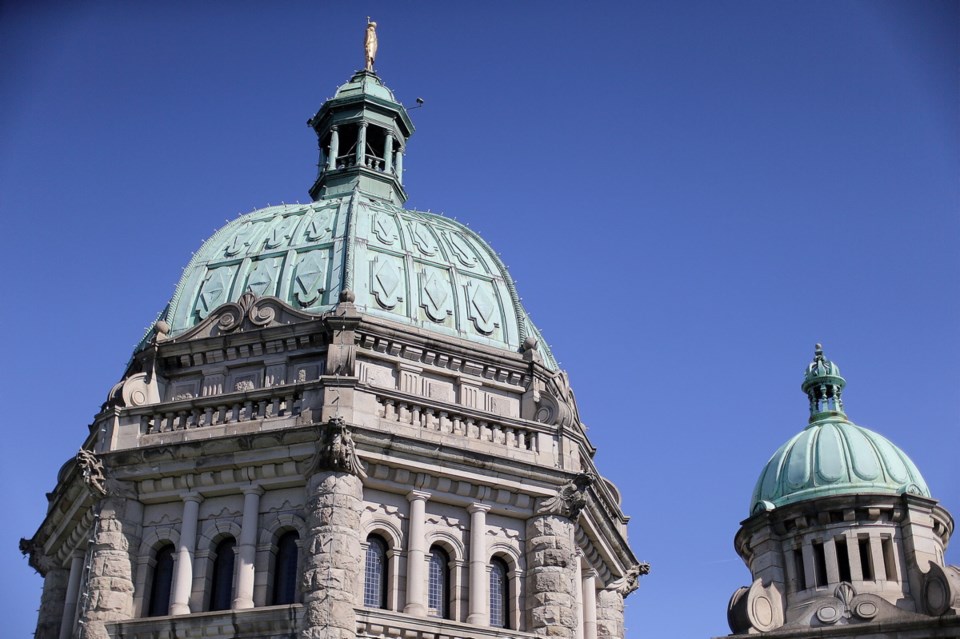Indigenous people are protected under the UN declaration on Indigenous rights from facing labour discrimination.
âIndigenous individuals have the right not to be subjected to any discriminatory conditions of labour ⦠employment or salary.â
Itâs one of the articles of that document and the NDP government is making formal observance of the declaration the law of the land.
The bill requiring that all B.C. laws be consistent with the declaration is being debated in the legislature. The article is easy to understand and no one in their right mind would argue it. Protection of that sort is already in place.
But what happens when you hypothetically stack that principle against another policy the government is observing â that only certain unions are eligible to represent workers on public projects being built under community-benefits agreements?
What happens first off is that you get an angry cabinet minister.
Indigenous Affairs and Reconciliation Minister Scott Fraser denounced Liberal critic Mike de Jong for conjuring up the question.
âOut of order. He is diminishing the issue of racism as it applies to Indigenous peoples, in a way that is crass, opportunistic and out of line and out of any expectation I would ever have for anyone in this place.â
De Jong had earlier said Fraser might be uncomfortable with the issue. But the minister corrected him.
âAngered would be the right word.â
The Liberals are going to support the bill, but remain critical of the community-benefits agreements for freezing out unions that donât fit the NDP mindset and hiking the cost of public projects.
On designated projects, bidders have to employ workers from one of 19 favoured unions, who are hired through a Crown corporation. The Liberals dwelled on the issue earlier this week, as dozens of workers arrived at the legislature to protest the 18-month-old policy.
Itâs a bit of a stretch to pull the UN declaration and the community-benefits agreements into the same argument, but de Jong tried to pull it off.
His scenario went like this: A First Nation with an interest in major developments and creating jobs â as is happening in Â鶹´«Ã½Ó³»and elsewhere â certifies members as part of an Aboriginal trade-union organization.
âA government comes along and says regarding infrastructure work: âIn order to work on those projects, you must leave the Aboriginal trade union and join a trade union of the governmentâs choosing.â â
Alternatively, individual Indigenous workers belongs to a union that isnât on the approved list, so they canât work on a designated job site until they switch.
The question is whether that is consistent with the UN declaration.
Fraser said it was a fanciful scenario, but de Jong denied it.
âWe are living it in B.C. today.â
Restricting work to a select number of unions is a discriminatory condition of labour, in the B.C. Liberalsâ eyes, so they think enshrining that in B.C. law will be a problem.
Fraser said the article is about outlawing racist discrimination on job sites and said the opposition should move on.
The argument ended inconclusively.
Liberals are much more interested in attacking the community-benefits agreements than they are in criticizing the declaration. As the debate made clear, theyâll throw anything they have against that arrangement. Itâs hard to picture the scenario coming to pass, but itâs intriguing to imagine what would happen if it did.
And thereâs no question how sweeping the declaration could be, once itâs fully recognized in B.C. law â for the first time anywhere.
Fraser said the bill doesnât give the declaration legal force and effect. But it does âallow us is to change legislation, build new legislation that reflects the values and is in alignment with the UN declaration. So again, a very powerful tool.â
Much of the focus has been on the requirement for âfree, informed and prior consentâ before development of projects on Indigenous lands, and whether that means a veto.
But there are 45 other articles that B.C. laws will eventually have to observe. Figuring out the complexities â whether they are invented or not â will go on for years after the bill passes the legislature next week.



